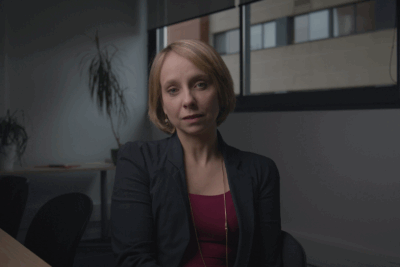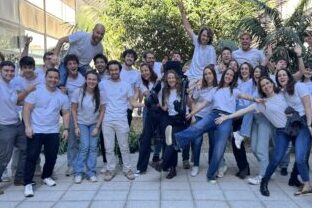7th September 2020
Firms will share €180,000 to support their access to data, and receive matchmaking assistance
Six European start-ups will share €180,000 in total funding from the EIT Health Digital Sandbox to support them in obtaining valuable data through European biobanks, quality registers and sample holders. The Digital Sandbox programme also will help start-ups find appropriate data sources and research partners.
The digital revolution has created massive amounts of medical data that can be used for research. EIT Health’s Digital Sandbox helps start-ups tap into that data, to create healthcare innovations and to further the development of new products and services. The programme, run out of EIT Health Scandinavia, also helps start-ups to collaborate with biobanks, sample holders and quality registers in Europe.
Half of the Digital Sandbox funding announced in early September is earmarked for accessing health data or biological samples. EIT Health will also support the six companies in establishing connections and collaboration with biobanks and registers and in identifying research partners.
“It’s our second consecutive year that we host this programme, and we are expanding the network to cover not only Estonia, Sweden and Denmark but also Belgium and the Netherlands,” said Ulrika Zagai, Project Manager for Biobanks and Registers in Transition, EIT Health Scandinavia. “Through last year’s Digital Sandbox, four companies have started collaborations with biobanks in Europe, and through our networking events we have facilitated collaborations with research groups. We have also advised on regulations in different countries, as they vary. Estonia has, for example, a National Biobank, which differs from Sweden and Denmark, who require a local research partner.”
Digital Sandbox Awarded Companies 2020
Biotech
Amadix (Spain) is a biotechnology company developing innovative diagnostic tools in oncology to improve the diagnosis of different types of cancer through a non-invasive test. They received funding for a project to develop a test for early detection of colon cancer. Amadix needs to gain access to health data from patients who have undergone a colonoscopy.
BeFC (France) makes electricity from papers and enzymes. They received funding for a project to use eco-friendly paper based Bioenzymatic Fuel Cells (BeFC) in medical disposables, like pregnancy tests, to eliminate the environmental impact of discarded batteries.
Medtech
Acobiom (France) is a biotechnology company specialised in the discovery of new biomarkers and in the development of innovative diagnostics, with expertise in genomics, statistics and machine learning. The firm received funding for a project to use biomarkers for diagnosing and personalising treatment of pancreatic cancer. Clinical data and real-world data from different biobanks will be evaluated to further their work.
GlyCardial Diagnostics (Spain) develops early diagnosis of cardiac ischemic events to reduce the impact of the disease on patients’ lives. They received funding for a project focused on the development of a novel diagnostic test for the early detection of cardiac events. This is important because early detection can make a huge difference in patient outcomes. GlyCardial wants to meet their research needs by using existing health data and biobank samples, more specific serum samples and anonymised clinical history data of cardiology patients.
Digital Health
Healthinn:Rehand (Spain) is developing the first tablet solution to allow for the rehabilitation of hand, wrist, and fingers while also supporting decisions taken by healthcare professionals. The company received funding to access clinical data related to the recovery of injuries and surgical interventions in hand, wrist, and fingers, from thousands of patients. Such data, which the firm will also use to understand their product demographic, is accessible in Scandinavian quality registers.
Radiobotics (Denmark) is developing algorithms for automatic and more-accurate analysis and description of routine medical x-ray images at hospitals, with a focus on musculoskeletal radiology. Radiobotics will use the funding for further work on a product to automate analysis of radiographs of the hip. The machine learning model has been developed and needs exposure to real-world data in order to ensure generalisability and allow product validation. This can be achieved by access to retrospectively collected digital radiographs of the pelvis. Such a data sample is for example accessible via a research sample collection in Denmark.
EIT Health and the EDIT-B consortium transform bipolar disorder diagnosis with groundbreaking blood test

Discover this life-changing project today.
Three EIT Health innovators nominated for EIT Awards

Meet our three EIT Award nominees.
Hospital Clínic study reinforces patient participation as key to digital health innovation

New work published in Journal of Medical Internet Research.